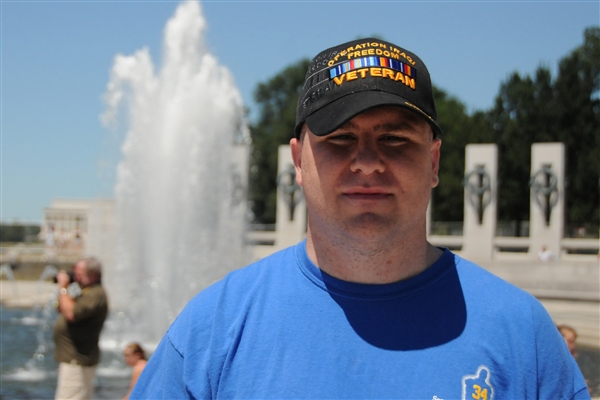WASHINGTON, June 21, 2011 — The United States remains committed to maintaining a robust forward presence in the East Asian region, Defense Secretary Robert M. Gates said today.
Gates and Secretary of State Hillary Rodham Clinton met with Japanese Foreign Minister Takeaki Matsumoto and Defense Minister Toshimi Kitazawa here for the first U.S.-Japan Security Consultative Committee Meeting held since 2007 .
The meetings, informally known as the 2+2 ministerial, underscore the strength of the U.S.-Japan security alliance and its role as the cornerstone of stability in the region. Discussions during this year’s meeting focused on the most critical challenges facing the Asia-Pacific region, Gates said. “Those include the denuclearization of North Korea, supporting continued progress in Afghanistan, and maritime security,” he said.
Gates said committee members agreed “on a framework to transfer jointly produced missile-defense interceptors to third parties, to deepen our cooperation on humanitarian assistance and disaster relief, and to start new initiatives in space and cybersecurity.”
Discussions included the response to the March 11 earthquake and tsunami that disabled Japan’s Fukushima nuclear power plant and left tens of thousands of people dead or missing and hundreds of thousands homeless.
“The sight of U.S. and Japanese forces working side by side to bring aid to the survivors of the earthquake and tsunami in March demonstrated the high level of interoperability between the U.S. and Japanese forces,” Gates said.
“It also validated years of investment by both nations in training and capabilities,” he added, ” … [and] demonstrated to a new generation in both countries the close bonds between our people and the value of this alliance.”
During today’s meeting, Kitazawa expressed Japan’s “heartfelt gratitude for the very generous support given by the United States in the aftermath of the great east Japan earthquake and for the kindness extended.”
All of Japan is grateful for Operation Tomodachi, he said, adding, “I believe it will be very important for us to learn from the experience of the earthquake and adapt to changing circumstances.”
Also on the agenda was the relocation of Marine Corps Air Station Futenma in Ginowan city on the island of Okinawa.
The United States and Japan agreed on realignment initiatives in a May 2006 roadmap document that included a target year of 2014 to relocate the base to the Marine infantry base at Camp Schwab in northeastern Okinawa.
“The purpose of the realignment is to maintain deterrence and reduce burdens on local communities,” Matsumoto said. “And the agreement this time is to achieve both.” In a document released today, committee members said the relocation would not meet the 2014 target and “confirmed their commitment to complete the above projects at the earliest possible date after 2014.”
“The decision announced today on the Futenma replacement facility configuration, along with other elements of the 2006 realignment road map, shows we are making steady progress toward modernizing U.S. forward presence in the region,” Gates said.
“It is critical,” he added, “that we move forward with the relocation of Futenma and construction of facilities in Guam for the U.S. Marines.”
Doing so, Gates said, will reduce the impact of U.S. presence on local residents and allow the United States “to maintain capabilities critical to the alliance in Japan.” International topics discussed at today’s meeting included North Korea, Afghanistan and other global security issues.
“On North Korea,” Clinton said, “we remain committed to deterring further provocative behaviors by North Korea, supporting a North-South dialogue, and promoting the complete and peaceful denuclearization of the Korean Peninsula.”
Committee members discussed efforts to improve regional cooperation in several multilateral forums “and through a trilateral dialogue with India,” she added.
Clinton said the members also addressed “joint efforts to advance peace and reconciliation in Afghanistan, ensure Iran’s compliance with its obligations under the Nuclear Non-Proliferation Treaty, and bring security against the pirates to the waters off the Horn of Africa.”
Along with a focus on global issues, Clinton said the group “celebrated the mutual respect and shared values that have served us so well for the past 50 years.”
As the U.S.-Japan alliance enters its second half-century, she added, “It remains indispensable to the peace, security and economic dynamism of the Asia-Pacific region.”
Gates said one of the most positive changes he’s seen during his time in government and after becoming defense secretary in late 2006 was an “extraordinary improvement” in U.S.-Japanese relations.
“Those ties have only grown and deepened in recent years,” said Gates, who will retire at the end of June.
“I leave this post convinced that the future of our alliance is a bright one,” the secretary added. “It will continue to be the cornerstone of peace and prosperity in the Asia-Pacific [region].”
Source:
U.S. Department of Defense
Office of the Assistant Secretary of Defense (Public Affairs)

 von
von 
